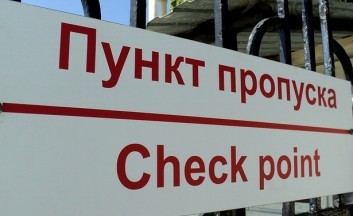Lukashenko Attempts to Depoliticize the Conflict with the EU
 The situation has not changed
The situation has not changed

Minsk is signalling Brussels its willingness to reduce political tension. However, after several European ambassadors have returned to Belarus, Minsk is not ready to make further mutual concessions and has transferred the dialogue into the area of migration policy.
EU foreign ministers did not introduce any new sanctions against Belarus at a meeting on April 23, and Minsk has interpreted this as an indication to continue trade with the West. Belarus does not seem willing to meet the EU requirements. President Lukashenko said that he may authorize a large-scale amnesty of prisoners in early July, and made it clear that some of them may be citizens recognized as political prisoners.
At the same time, the Belarusian authorities continue a policy of selective liberalization and repression against political opponents. Two full scale opposition rallies were authorized in Minsk, however, the rally on April 26 ended with the brutal detention of youth activists. Detentions and trials of the protesters coincided with the return of the European ambassadors to Minsk.
Thus, the Belarusian side demonstrates the West their understanding of the sovereignty, and at the same time compensates for their “weakness” after the release of Sannikov and Bondarenko in mid-April. In the case of negotiations being resumed with the EU, the Belarusian side will revert to the traditional liberal-repression policy of balancing. Minsk city authorities have already rejected a petition from the opposition to stage a rally on May 1.
Lukashenko expressed his willingness to resume a dialogue with the EU. He publically stated that the EU sanctions could have been much more severe if the EU had intended to harm Belarus. His statement only proves earlier theories that Lukashenko had agreed to resume relations with the EU.
Lukashenko’s readiness to relax control over the Belarusian-Ukrainian border (in the time of the World Football Championship) can be viewed as a typical Minsk negotiation technique. It is an attempt to create a problem or threat and then “trade” this problem or a threat in exchange for particular concessions. If this stake does not work, the authority will continue their attempts to acquire another bargaining chip.
Subscribe to our newsletter




Situation in Belarus
Constitutional referendum: main consequences


 Video
Video
How to count the political prisoners: are the new criteria needed?


 Video
Video
Paternalism In Decline, Belarusian Euroscepticism, And The Influence Of Russia


 Video
Video












